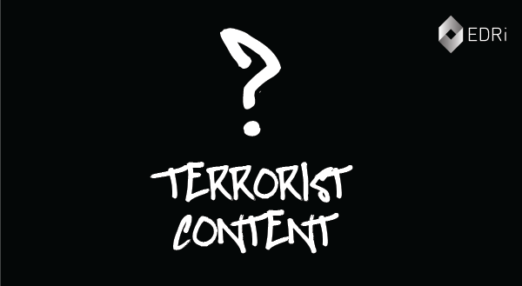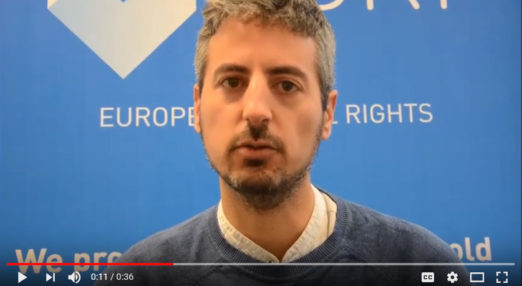terrorist content online
Filter by...
-

The EU Parliament Took a Stance Against AI Mass Surveillance: What are the Global Implications?
The European Parliament's resolution on artificial intelligence in criminal law and its use by the police presents an opportunity for the EU to reconsider its role in the development of such tools, their sale, or use as part of its counter-terrorism and anti-immigration policies abroad.
Read more
-

Antiterrorists in a bike shed – policy and politics of the Terrorist Content Regulation
The short story: an ill-fated law with dubious evidence base, targeting an important modern problem with poorly chosen measures, goes through an exhausting legislative process to be adopted without proper democratic scrutiny due to a procedural peculiarity. How did we manage to end up in this mess? And what does it tell us about the power of agenda setting the name of the “do something” doctrine?
Read more
-

European Parliament confirms new online censorship powers
EU regulation against ‘terrorist’ content online (TERREG) was approved without a final vote by the European Parliament on April 29th. The regulation will harm our ability to freely express ourselves and access information online.
Read more
-

Coalition of human rights and journalist organisations express concerns for free speech
On 25 March, 61 human rights and journalist organisations sent a joint letter to Members of the European Parliament, urging them to vote against the proposed Regulation on addressing the dissemination of terrorist content online.
Read more
-

La Quadrature du Net asks for renewed support to challenge TERREG in France
In light of the European Parliament's vote on the Regulation to prevent the dissemination of said “terrorist content”, EDRi observer La Quadrature du Net (LQDN) sheds light on some of the most concerning provisions which have to be addressed before the final adoption of the regulation.
Read more
-

Trilogues on terrorist content: Upload or re-upload filters? Eachy peachy.
On 17 October 2019, the European Parliament, the Council of the European Union (EU) and the European Commission started closed-door negotiations, trilogues, with a view to reaching an early agreement on the Regulation on preventing the dissemination of terrorist content online. The European Parliament improved the text proposed by the European Commission by addressing its […]
Read more
-

Press Release: EU Parliament deletes the worst threats to freedom of expression proposed in the Terrorist Content Regulation
Today, 17 April 2019, the European Parliament (EP) adopted its Report on the proposed Terrorist Content Regulation. Although it has been questioned whether this additional piece of law is necessary to combat the dissemination of terrorist content online, the European Union (EU) institutions are determined to make sure it sees the light of day. The […]
Read more
-

Open letter: Regulation on terrorist content online endangers freedom of expression
On 18 March 2019, together with seven other organisations, EDRi sent a letter to Members of the European Parliament (MEPs), to share our concerns with regards to the draft Regulation on preventing the dissemination of terrorist online content. The European Parliament Committee in Civil Liberties, Justice and Home Affairs (LIBE) is set to vote on […]
Read more
-

All Cops Are Blind? Context in terrorist content online
The battle for the control of content and devices online has been at the centre of European policy-makers’ attention since the internet was created, but it has only increased in the recent years. Without any consideration for scientific literature on violent radicalisation factors, the current paradigm in the area of counter-terrorism leads to a proliferation […]
Read more
-

The EU Council’s general approach on Terrorist Content Online proposal: A step towards pre-emptive censorship
On 6 December 2018, the EU Council published its general approach on the proposed Terrorist Content Online Regulation. The Council’s position poses serious risks to violate inviduals’ fundamental rights. The approach follows a pattern of rushing into introducing new measures without an appropriate evaluation of their efficiency or consequences to fundamental rights such as privacy […]
Read more
